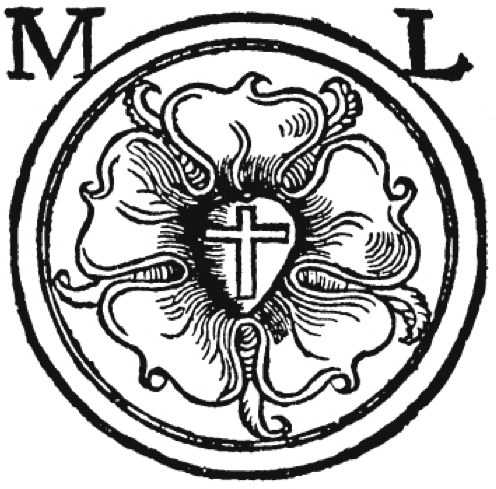The Christian in Community
It is our danger, mixed with hope, that future generations will forget why we remember God’s gift of life every January. The danger is that post-Roe we have short memories, that we forget that the war to defend innocent,
unborn boys and girls is still being fought state by state and within cities and even homes. The hope is that in future generations human life— the gift God gives and defends— will have full civil protection in our communities and families.
It is easy to minimize or dismiss the evil of abortion. Those of us whose families have suffered a miscarriage or stillbirth know how fragile human life is in the womb. It seems a small step to choose death for that fragile life— quiet, unseen, unknown. But the difference between suffering death and choosing death is as wide as the ocean. One lies in the hands of God, the other in the hands of man. One can be suffered while allowing God to be God. The other violently denies the true God and offers human life to the demons as a sacrifice, in the deceitful hope of obtaining happiness, prosperity, and power.
Abortion is not only a rejection of the true God, who creates human life in the womb (Psalm 139) and who assumed our human flesh in Mary’s womb. It is also a rejection of all the gifts that God has given with human life. It rejects marriage, which was instituted for the increase and flourishing of man. It rejects the family which God increases and blesses through childbearing. It rejects the common life of man in his neighborhood and community. It rejects the divine life given to the baptized, the believers in Christ.
Every estate of man is dependent upon marriage to bring family members, citizens, and Christians into this world. When there are no births, there are no children, no families, no future marriages. When there are no births, there are no citizens, no civic wellbeing, no future for community or nation. When there are no births, there are no babies at the font, no Christian children raised by Christian parents, no future church members or pastors. The killing off of the next generation is the killing off of home and civil community and church.
Read Exodus 1 to see this evil program attempted. Pharoah had enslaved Israel, but he feared them because “they are too many and too mighty for us” (1:9). He commanded first the midwives and then all his people to murder every baby boy at birth.
If Pharoah had succeeded, he would have begun by cutting Israel’s population growth in half. He would have eliminated future husbands and fathers. He would have completely disrupted marriage and home. You can imagine the mothers weeping for their baby sons, refusing to be comforted, because they are no more (Jeremiah 31:15; Matthew 1:18). The love of husband and wife would grow cold in this enforced sterility. Households would be marked by lives of despair—without hope, without joy, without a future.
And if Pharoah had succeeded in murdering the next generation of men, there would have been no elders in Israel, no fathers in their communities, no men of war to defend the women and children. Civil communities would revert to shadows, intent no longer on raising up the next generation but com-mitted to stimulating the deceitful and deadly “pleasures” of perversion and hopelessness.
And worst of all, if Pharoah had killed the baby boys, he would have cut off the future of the Church of the living God. There would be no boys to circumcise. No boys would grow up to become Christian men. There would be
no husbands and fathers to teach God’s Word in their homes. Male leader-ship in the Church would have been eliminated. The resulting feminized Church would fade away into cults of idols and temple prostitution and unspeakable perversions. And ultimately, Pharoah would have destroyed the lineage of Jesus Christ, the Son of the living God.
Let us never forget. Those Christian midwives, in defying Pharoah, are the example we must imitate. Indeed, let us defy abortion’s religion of death and all the impieties it teaches. Let us give all help and support to our Christian young people, that they marry, bear many children, bring them to Baptism, and raise them up as devout Christians. God grant that through the blessings of marriage and childbearing our homes and civil communities and congregations prosper and increase according to God’s gracious will.
REFORMATION 500

From the Diet of Worms in 1521 into 1524 the Lutheran Reformation enjoyed a time of relative peace. Luther and his colleagues were still translating the Old Testament. Luther patiently preached and taught at St. Mary’s Church in Wittenberg. Roman Catholic abuses and errors were slowly corrected. He gradually introduced liturgical reforms and began writing new hymns. Luther wrote prolifically, extending the Reformation into other areas of Germany and beyond. He reluctantly addressed errors and conflicts as they arose.
But the clouds of civil unrest and of persecution of the faith were on the horizon. We read about the martyrdom of two Lutheran young men on July 1, 1523. On January 19, 1524 Luther wrote a letter of comfort to a third Lutheran who was imprisoned for his faith. In the coming couple of years we will see more martyrdoms along with national and international unrest, not only political, but also doctrinal and ecclesiastical.
In the Spring of 1522 a new congregation was established in the town of Miltenberg. The congregation elected the Lutheran John Drach as their pastor, and Pastor Drach began to put his Lutheran convictions into action in the parish. However, there were a dozen Roman priests whose income was damaged as the congregation turned away from their private masses for the dead, and they reacted by charging Drach with heresy. The congregation responded with such anger that the priests were almost lynched and were rescued only by the intervention of Drach himself. The congregation persuaded Pastor Drach to leave town till the unrest died down.
The Roman priests fled, but they filed charges of violence and disorder against the town. On October 20, 1523, the officers of the Roman bishop, with the aid of armed Roman Catholic farmers in the area, retook the town. In the next couple of days they arrested a number of the prominent Lutheran laymen, forced the citizens to swear allegiance to the old Roman episcopal order and accept the Roman priests, and revoked their right to call their own pastor. Pastor Drach was never permitted to return. Only a small, hard core of Lutherans remained.
Luther wrote A Christian Letter of Consolation to the People of Mil-tenberg (AE 45.103–112) on February 14, 1524. He brought them words of comfort from 2 Corinthians 1:3–4, “Blessed be the God and Father of our Lord Jesus Christ, the Father of mercies and God of all comfort, who com-forts us in all our affliction, so that we may also comfort those who are in any affliction, with the comfort with which we ourselves are comforted by God.” And Romans 15:4, “For whatever was written was written for our instruction, that by patience and by the encouragement of the Scriptures we might have hope.”
Luther taught these afflicted Christians not to look for the false com-fort that avoids suffering, for this false comfort “slows down and stops all the benefits and the fruits that come to us from suffering and cross” (103). In-stead, we learn patience and find the encouragement of Holy Scriptures, which is accompanied by godly hope in those things which are beyond our sight and feelings.
Luther warned them against the devil’s comfort, which would direct them to seek vengeance on their oppressors. God’s comfort, because our cause remains just in His sight, gives “a good, secure conscience.” He continued, “If you were able to choose between their lot and yours, would you not turn and run from theirs as from the devil, even though it were like a heavenly kingdom, and hasten to yours, even though it were like a hell, since heaven cannot possibly be happy when the devil reigns there, and hell cannot be sad if God reigns there?” (106)
He then reminded them that God will work out His vengeance upon the enemies of Christ. Psalm 8:2: “You have established virtue from the mouths of babes and sucklings that you might put an end to the enemy and avenger.” God speaks His word in our mouths, especially when we are as weak as babies in our affliction and persecution. This praise of His mercy “is a rock and solid ground against which the gates of hell will not pre-
vail” (Matthew 16:18). Our “happy victory and conquest” is accomplished only with the Word. “That is why it pains the devil, for it is gratifying to him if he can incite us to anger, vindictiveness, impatience, and sadness through his followers. But if their persecution results in our joy and our praising God and extoling His Word—that is his real hell” (107).
Luther concluded his letter with a translation and commentary on Psalm 120. You may read its comfort and help for persecuted Christians. This concluding thought is a comment on the fourth verse:“Thus this verse asks for good preachers who proclaim the Word of God in faith and with might, and who overthrow all that pertains to the devil and let their faith shine brightly with works of fervent love” (109). Amen, so let it be!

